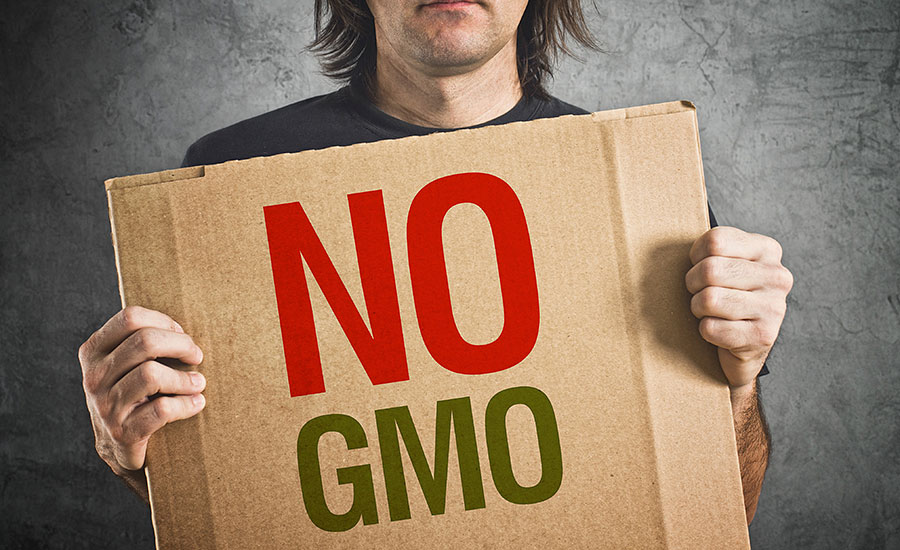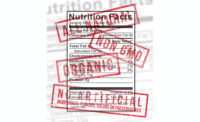Regulations & Legislation
Vermont GMO-labeling law goes into effect July 1

Act 120 requires food-containing GE ingredients that are sold in Vermont retail establishments to bear a label (or be accompanied by a sign) indicating the presence of GE ingredients.
Barring late action by Congress or an eleventh-hour ruling from a federal appeals court, Vermont will soon become the first state in the U.S. to implement a mandatory GMO-labeling regime. Originally enacted in 2014, the law, formally known as Act 120, is slated to go into effect on July 1, 2016. Although this law has been the subject of major controversy within the food industry, the law exempts a number of major food categories from mandatory labeling, including most food products containing meat and poultry.
The organic food industry, anti-biotechnology activists and some consumer groups have pushed for mandatory disclosure of genetically engineered (GE) ingredients for more than a decade. Thus far, their efforts to pressure Congress, FDA or USDA to enact a federal standard have failed. As an alternative, these groups have turned to state houses and ballot initiatives to advance mandatory labeling. While ballot initiatives have failed in California, Washington, Oregon and Colorado, pro-labeling activists have enjoyed some success in New England state legislatures. Vermont, Maine and Connecticut have all passed mandatory labeling legislation. However, Vermont’s Act 120 is the only state labeling law that is slated to go into effect; Maine and Connecticut’s laws have a trigger clause that requires a critical mass of other states to adopt similar measures before their laws become effective.
Act 120 requirements
Act 120 requires food-containing GE ingredients that are sold in Vermont retail establishments to bear a label (or be accompanied by a sign) indicating the presence of GE ingredients. The manufacturer of the food product is responsible for ensuring appropriate products are labeled; manufacturers that violate Act 120 are subject to fines issued by the Vermont Attorney General as well as private enforcement initiated by citizen lawsuits.
There are a number of notable exemptions to Act 120’s mandatory labeling requirement. First, products derived from animals, including meat and poultry, are not considered genetically engineered under Act 120, regardless of whether the animals were fed biotech feed. Furthermore, processed food products that have been inspected by USDA’s Food Safety and Inspection Service (FSIS) and bear the FSIS mark of inspection (e.g., canned stew, frozen meals) are also exempt from Act 120’s labeling requirements. The only products containing meat and poultry that could be subject to mandatory labeling would be non-amenable (FDA-inspected) product containing meat or poultry, such as packaged closed-faced sandwiches and other meat and poultry products that contain less than 2 percent cooked (or 3 percent raw) meat and poultry that are not represented as products of the meat and poultry industry.
In addition to exemptions for meat and poultry, Act 120 also exempts genetically engineered processing aids, alcohol, ready-to-eat meals and products sold in foodservice establishments.
Efforts to combat Act 120
There are a number of opponents to Act 120. Many in the agricultural and food community are concerned that mandatory labeling will stigmatize biotechnology and cause undue alarm about the safety of GE products. The food industry is also concerned about the prospect of a 50-state patchwork of labeling laws. Accordingly, there have been coordinated efforts through lawsuits and lobbying to block Act 120 from becoming effective.
In 2014, several food industry groups, led by the Grocery Manufacturers Association (GMA), filed a lawsuit to block Act 120 from going into effect on the basis that it violated the First Amendment. The U.S. District Court in Vermont held that the GMO-labeling requirement was constitutional and upheld most parts of the law. GMA appealed this decision to the Second Circuit Court of Appeals but the Second Circuit has yet to rule.
Congress is also considering legislation that would preempt Act 120 and replace it with either a national voluntary or mandatory labeling regime. In 2015, the House of Representatives passed a bill that would preempt state labeling laws and establish a voluntary labeling program. The Senate attempted to pass a similar measure, but it failed. Members of the Senate Agriculture Committee are working on a compromise that can pass both houses, which may include a form of mandatory disclosure through QR code technology and which could potentially affect processed meat and poultry products.
Whether a solution for preemption can be reached before July 1st remains to be seen. Stay tuned. NP
Looking for a reprint of this article?
From high-res PDFs to custom plaques, order your copy today!






